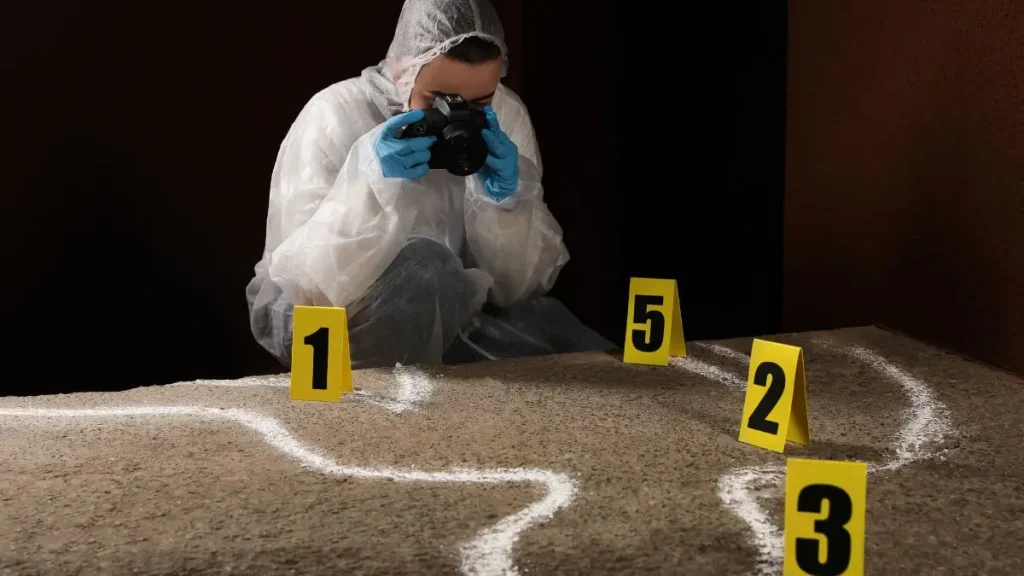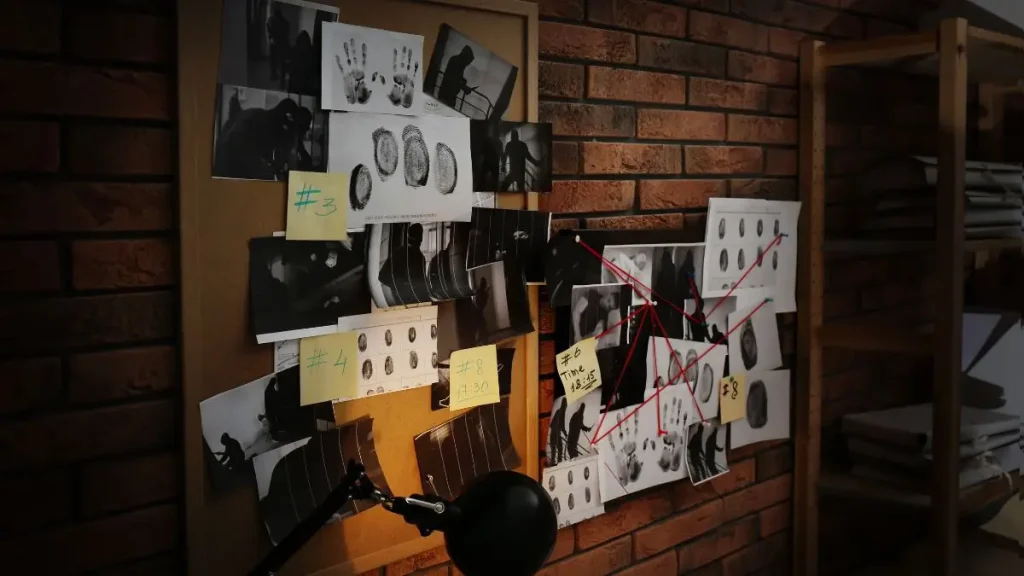Man Found Guilty of Planning Deadly Home Invasion in Lower Merion
I still remember reading about the Lower Merion home invasion and feeling a knot in my stomach. It’s hard to wrap your head around how a simple mistake—going to the wrong house—could completely shatter a family’s life.
On December 8, 2024, Andrew Gaudio, a 25-year-old man with his whole future ahead of him, was shot and killed. His mother, Bernadette Gaudio, who had always been active and independent, was left paralyzed.
Here’s the thing that makes this story stick with you: the attackers didn’t even know they were at the right house. Charles Fulforth and Kelvin Roberts, employees of a junk removal company, had intended to steal firearms from another address.
But they ended up in the Gaudios’ home, a nearly identical address in Wynnewood. One wrong turn, one tragic mix-up, and lives were destroyed.
And then there’s Jeremy Fuentes, the 27-year-old who unknowingly set the chain of events in motion. While giving a quote for the removal of some items at a Bucks County home, he noticed a gun safe and other firearms. He passed that information to his boss, Fulforth—never imagining it would lead to murder.
Role of Jeremy Fuentes
When I first read Jeremy Fuentes’ part in this story, I felt torn. On the surface, he wasn’t physically at the Gaudio home that night. But the truth is, his actions set everything in motion. While visiting a Bucks County home on December 6, 2024, to give a Junkluggers estimate, Fuentes noticed a gun safe, ammunition, and other firearms.
He sent photos and details to his boss, Charles Fulforth, not realizing that this information would eventually lead to murder.
It’s a hard pill to swallow because it raises questions about intention versus consequence. Fuentes wasn’t armed, he didn’t fire a shot, and he didn’t enter the Gaudio home. But according to prosecutors, without the information he provided, Fulforth and Roberts wouldn’t have gone there at all.
Reading the coverage on NBC Philadelphia helped me understand how the legal system grapples with situations like this. Sometimes, it’s not the person holding the weapon who bears responsibility—it’s anyone whose actions directly set a tragedy in motion.
This part of the story reminds you that even small decisions—sharing information, sending a photo, or speaking up—can have unintended consequences. It’s sobering, but it’s also a moment to reflect on personal responsibility.
Timeline of Events Leading to the Tragedy

I want to lay this out chronologically because the sequence of events really helps you see how one day can change everything.
- Dec 6, 2024: Fuentes visits the Bucks County home, notices firearms, and sends the details to Fulforth.
- Dec 8, 2024: Fulforth and Roberts go to the wrong Wynnewood address. Andrew Gaudio is shot and killed; Bernadette is paralyzed.
- Dec 11–17, 2024: Arrests of Fulforth and Roberts. Fuentes is arrested later in January 2025.
Putting these events side by side, you realize how fast things spiraled. In a matter of two days, a routine job visit turned into a tragedy no one could have predicted. This timeline shows how seemingly disconnected actions—like a home estimate, a photo, and a phone call—can collide in catastrophic ways.
Home invasions can escalate in unexpected ways, as seen in the Maryland case where an 81-year-old grandmother was tragically found dead.
The Trial of Jeremy Fuentes
The trial started on September 15, 2025, and from the very first day, it was clear the courtroom would wrestle with a difficult question: can someone be guilty for a murder they didn’t physically commit?
Fuentes’ lawyer argued that he wasn’t at the Gaudio house that night and didn’t know a robbery or murder would occur. Meanwhile, prosecutors painted a very different picture: without Fuentes’ information, Fulforth and Roberts wouldn’t have targeted the wrong home.
They presented cellphone records, texts, and even shared articles from NBC10 showing that Fuentes had read news about the crime multiple times before being approached by the police.
Reading 6ABC’s coverage gave me a detailed look at the courtroom strategy, witness testimonies, and how the jury wrestled with these nuances. There’s something almost human about it—you can feel the tension, the moral questions, and the emotional weight each person carried into the courtroom.
For you, it’s a reminder that justice isn’t always black and white. The law has to navigate intention, action, and consequence, and sometimes the moral questions feel heavier than the legal ones.
Verdict and Reactions
On September 17, 2025, the jury returned a verdict: guilty on all charges for second-degree murder and conspiracy. Fuentes, at just 27, now faces mandatory life in prison.
What hit me the most wasn’t just the verdict—it was the reaction of the family. Robert Gaudio, Andrew’s brother, spoke about how gun violence has plagued their lives and called for Second Amendment reform.
He stood next to his mother, now paralyzed, and asked a question that cuts deep: “Even if my family had a properly stored gun, how would that have saved them?”
And then there was Fuentes himself, sobbing silently. His attorney promised an appeal, claiming Fuentes was manipulated and didn’t intend for the crime to happen. You can feel the tension between personal accountability and the broader legal and moral questions that this case raises.
Similar tragic mistakes have occurred in other cases, like the 16-year-old shot and killed in a Kentucky home invasion, showing how quickly lives can be turned upside down.
Broader Implications and Lessons

When I step back from the case, the bigger picture is clear: greed, negligence, and illegal firearm trafficking intersected to create tragedy. There are lessons for all of us here.
First, the story highlights the need for secure firearm storage. Even legally owned weapons can become part of violent crimes if information about them falls into the wrong hands.
Second, it raises questions about employee responsibility. Fuentes worked for a company that had no idea this would happen, yet his actions indirectly contributed to a crime. Employers and employees alike have to consider the potential consequences of what might seem like harmless actions.
Finally, it’s a community lesson. Suburban neighborhoods like Wynnewood assume safety, but this case shows that vigilance and awareness are essential.
You can also get instant updates and safety tips on home invasions directly through WhatsApp.
The takeaway? Life can pivot on a single decision. What seems like a small choice—sending a photo, sharing a detail, or turning a blind eye—can have consequences you never imagined.
Expert Opinions and Analysis
When I looked into the legal and criminal expert commentary on this case, a few points really stood out. Lawyers highlighted the tricky nature of conspiracy and second-degree murder charges. Even though Fuentes didn’t pull the trigger, the law treats the provision of crucial information as a serious contribution to the crime.
Criminologists pointed out a pattern here: greed, opportunism, and access to sensitive information can escalate quickly into violence. This isn’t just a legal story—it’s a cautionary tale about how small decisions can ripple into catastrophic outcomes.
Reading the expert analyses helped me understand the human and systemic layers. On one hand, the law had to assign responsibility; on the other, you see the moral gray areas. If you put yourself in Fuentes’ shoes, you can almost feel the unintended consequences weighing heavily.
The takeaway for you: consider the ripple effects of your actions, especially when dealing with sensitive information or high-stakes situations. Even a seemingly minor choice can set a chain of events in motion that you never intended.
Cases like the Kentucky man arrested following the discovery of his partner’s decomposed body highlight how quickly investigations unfold and the ripple effects on families.
Key Takeaways for Readers
Here’s what I hope you take away from this story.
- Responsibility Matters: Every action, no matter how small, can have significant consequences. Fuentes didn’t intend for murder to happen, but his decision to share information played a critical role.
- Safety First: Secure firearms properly. The Gaudio family tragedy shows that even legally owned weapons can become instruments of violence if accessed improperly.
- Community Awareness: Being vigilant about safety in your own neighborhood isn’t paranoia—it’s practical.
- Legal Nuance: Understanding how the law views intent versus action can help you grasp why people are charged in certain ways.
And here’s my personal thought for you: ask yourself how your everyday decisions might ripple out into the world. Sometimes the smallest actions carry the biggest consequences.
What do you think could have been done differently in this case to prevent such a tragedy? I’d love to hear your perspective.
For more in-depth stories on home invasions and crime cases, explore our Home Security section.
Disclaimer: This article is for informational purposes only and does not constitute legal advice. All facts are sourced from trusted news outlets, but circumstances may evolve. Readers should consult official sources or legal professionals for guidance.


